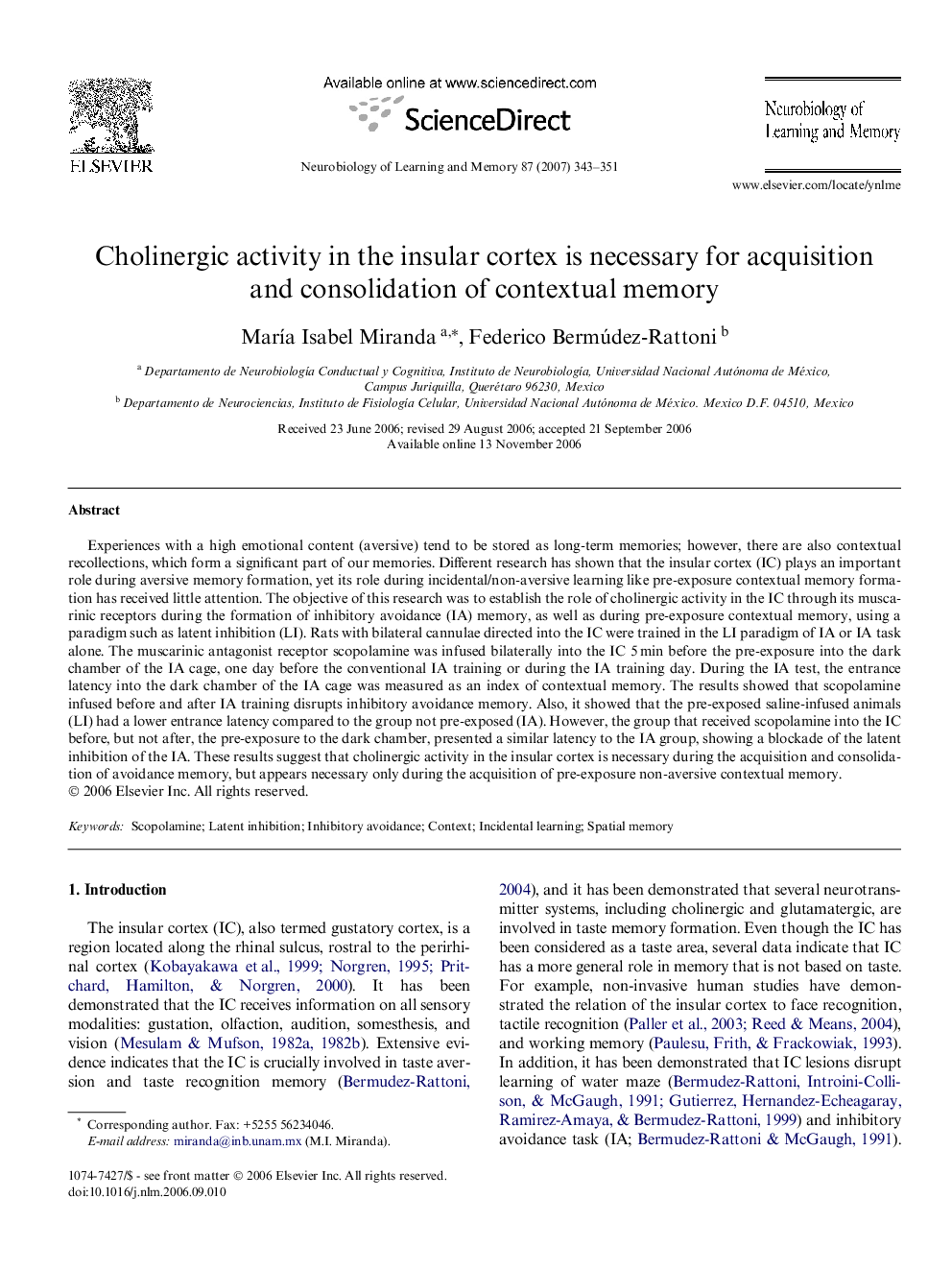| Article ID | Journal | Published Year | Pages | File Type |
|---|---|---|---|---|
| 937221 | Neurobiology of Learning and Memory | 2007 | 9 Pages |
Experiences with a high emotional content (aversive) tend to be stored as long-term memories; however, there are also contextual recollections, which form a significant part of our memories. Different research has shown that the insular cortex (IC) plays an important role during aversive memory formation, yet its role during incidental/non-aversive learning like pre-exposure contextual memory formation has received little attention. The objective of this research was to establish the role of cholinergic activity in the IC through its muscarinic receptors during the formation of inhibitory avoidance (IA) memory, as well as during pre-exposure contextual memory, using a paradigm such as latent inhibition (LI). Rats with bilateral cannulae directed into the IC were trained in the LI paradigm of IA or IA task alone. The muscarinic antagonist receptor scopolamine was infused bilaterally into the IC 5 min before the pre-exposure into the dark chamber of the IA cage, one day before the conventional IA training or during the IA training day. During the IA test, the entrance latency into the dark chamber of the IA cage was measured as an index of contextual memory. The results showed that scopolamine infused before and after IA training disrupts inhibitory avoidance memory. Also, it showed that the pre-exposed saline-infused animals (LI) had a lower entrance latency compared to the group not pre-exposed (IA). However, the group that received scopolamine into the IC before, but not after, the pre-exposure to the dark chamber, presented a similar latency to the IA group, showing a blockade of the latent inhibition of the IA. These results suggest that cholinergic activity in the insular cortex is necessary during the acquisition and consolidation of avoidance memory, but appears necessary only during the acquisition of pre-exposure non-aversive contextual memory.
